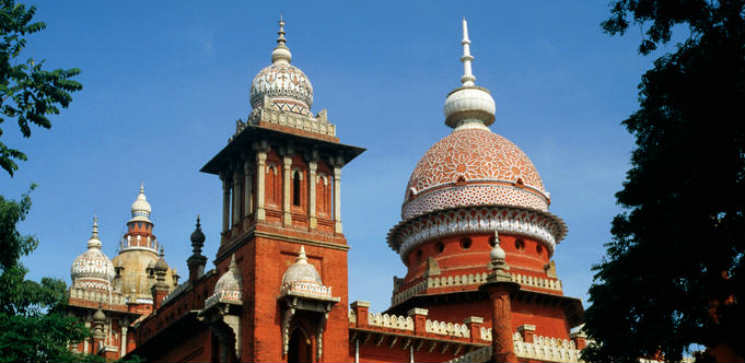Rapists should go to prison. It seems obvious, but The Madras High Court seems to find this a rather radical idea. Their Justice D. Devadass has recently granted bail to a rape accused in order for him “to participate in a mediation process with the victim in the case”. Justice D. Devadass defended himself by saying that a similar case which he had referred for mediation come to a “happy conclusion,” meaning that the accused had agreed to marry the victim.


The judgment said: “Keeping the appellant inside the jail and asking him to participate in the mediation talk will not result in any fruitful result. He should be enabled to participate in the deliberations as a freeman and vent his feelings, open his mind and moorings. Where there is a will, there is a way.”
And indeed so it seems, where there is a will, there is a way – even out of prison. Unfortunately, the approach taken by the Madras High Court is not particularly uncommon. There are countless of reports from all over the world of rapists being encouraged to marry their victims in order to redeem them of their crime. Basically this logic is like as if someone damages a product in a shop and then needs to buy it in order to make amends. When marriage is treated as a solution to rape, a raped woman is treated similar to the damaged good. But here’s the trick. Women are not products. They are people.
Let’s consider this. It is sometimes said that marriage between rapist and victim brings (back) “dignity” to the victim. This idea is terribly problematic as it derives archaic notions about female sexuality. Often the norm for women is to remain their virginity until marriage and if she is not able to live up to this, she is seen to have lost her “dignity”. In other words, women are shamed for having sex even when the sex has been forced upon them. Essentially we need to realize that a person’s morality does not depend on their virginity. A woman can be a good person regardless of whether she has sex or not. In fact, the only link between sexuality and morality derives from the magic key word “consent”. Consent is a statement of shared intentions, it’s an agreement. So sexual intercourse outside of this agreement is considered rape, which is in fact immoral and illegal.
Sometimes people also argue that it will help the rape victim if she marries her rapist because then there will be someone to take care of her. The fear involved is that no other man would marry a woman who has been raped once. This again links into the idea that a raped woman is somehow “broken”, as explained above. But there is nothing wrong with a raped woman. So there is no reason why no one else should agree to marry her.
Besides, can you honestly imagine spending a lifetime with someone who forced you to have sex with them? The chances are big that the abuse will continue to happen, even after marriage. And this is not even illegal in India as Section 375, the provision of rape in the Indian Penal Code (IPC), mentioned as its exception clause- “Sexual intercourse by a man with his own wife, the wife not being under 15 years of age, is not rape.” Rape causes serious trauma and to forcefully marry a victim to her rapist is just torture.
Things become more complicated when a rape victim willingly marries their rapist. This was the reality for example in the famous case of American teacher Mary Kay Letourneau and her former student (and rape victim) ViliFualaau. The first thing to be noticed here however is that Mary Kay Letourneau served her time in jail before she and ViliFualaau decided to marry. Yet even here, we should be careful to call this a “happy ending”. Choice always happens within the spectrum of a context. Emotional damage resulting from sexual abuse may lead a victim to start normalizing the sexual assault or abusive relationship.
Overall we can conclude that the only possible scenario close to a “happy ending” after rape is when a victim is given proper care and support from their community. And the rapist should go to jail. Period. No negotiations. The end.
Read more about the Madras High Court case
Looking forward to reading your blogs, you can mail us your entries at WriteWithUs@csrindia.org, or upload them at Write With Us.
Donation for Centre for Social Research to Join our effort in rehabilitating Domestic Violence
Discuss this article on Facebook




